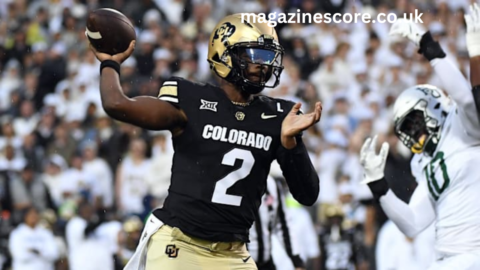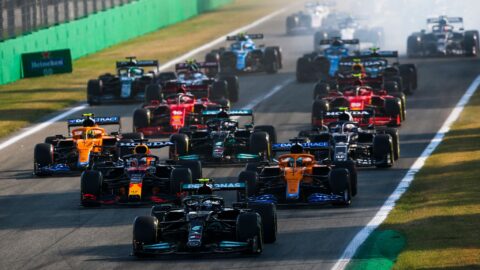Football, or as it is known in many parts of the world, soccer, has evolved into a universal language that brings people from all corners of the globe together. The game transcends borders, cultures, and languages, and unites millions through passion, competition, and spectacle. In this context, one of the most thrilling and unique narratives in football revolves around the clash between clubs and national teams. One such interesting combination involves River Plate, one of Argentina’s most iconic football clubs, and the Mexico national football team.
While the two entities—river plate vs mexico, a legendary Argentine club, and the Mexico national team—do not traditionally meet in direct competition, the thought of them facing each other on the football field invites fascinating discussions about football styles, legacy, and history. This article will explore the historical backdrop, cultural significance, playing styles, and potential matchups between these two footballing forces.
The Legacy of river plate vs mexico
River Plate is not just a football club; it is a symbol of Argentine football. Founded on May 25, 1901, the club is one of the most successful in South America and boasts a rich history filled with accolades and legendary players. Known as “Los Millonarios” (The Millionaires), River Plate has captured countless national and international titles, solidifying its reputation as one of the greatest clubs in the world.
River plate vs Mexico home stadium, El Monumental, is an iconic venue that has witnessed countless memorable moments in football history. The stadium, located in Buenos Aires, Argentina, is the largest in the country and has seen the club’s many triumphs, including numerous Argentine Primera División titles, Copa Libertadores trophies, and other prestigious international honors. The club’s ability to attract world-class talent and nurture young players has made it a breeding ground for some of the sport’s greatest stars.
Over the years, River Plate has been home to a long list of legendary footballers, including Alfredo Di Stéfano, Daniel Passarella, Ariel Ortega, and more recently, Lionel Messi’s early development before moving to Barcelona. The club has consistently demonstrated a commitment to excellence, both in domestic and international competitions, and remains a major force in South American football.
The Mexico National Football Team
The Mexico national football team, known as “El Tri,” has a history that is just as rich as River Plate’s, albeit on the international stage. Football is the most popular sport in Mexico, and the national team has garnered a massive following both at home and abroad. Mexico’s footballing heritage is deeply embedded in the fabric of the nation, and the team has achieved significant success in international competitions over the years.
Mexico’s footballing tradition dates back to its first official international match in 1923. The team has participated in every FIFA World Cup since 1994 and has reached the knockout stages multiple times, establishing itself as a formidable force in international football. The country’s domestic league, Liga MX, is one of the strongest football leagues in North America, consistently producing top-quality players who represent the national team on the global stage.
Key figures in Mexican football history include players like Hugo Sánchez, Rafael Márquez, Cuauhtémoc Blanco, and Javier Hernández (Chicharito). These players have earned international acclaim for their exceptional skill, leadership, and contributions to the sport. Mexico’s vibrant football culture is evident in the passionate support of its fans, who fill stadiums during national team matches and Liga MX games alike.
One of the most notable moments in Mexican football history was the country’s successful hosting of the 1986 FIFA World Cup. Mexico reached the quarterfinals of that tournament, and the nation’s love for the game was showcased to the world.
Why river plate vs mexico Matters
The prospect of a football match between River Plate and the Mexico national team is an intriguing one. Although these two entities have not faced off in a competitive fixture (at least not in a traditional club vs. country context), the clash would bring together two of the most storied institutions in the football world. A matchup between River Plate and El Tri would represent the convergence of South American club football with the pinnacle of international competition from North America.
Previous article; How to Draw Stitch A Step-by-Step Guide for Beginners
Here are several key factors that make this potential encounter so compelling:
1. Playing Styles
One of the most striking aspects of a hypothetical encounter between River Plate and Mexico is the difference in playing styles. River Plate, like many Argentine clubs, has traditionally been known for its attacking football, technical skill, and tactical sophistication. Argentine football places a strong emphasis on individual flair and creativity, with a focus on passing, ball control, and fluid movement. River Plate’s attacking philosophy often emphasizes quick transitions, with a tendency to control possession and dictate the pace of the game. The club’s emphasis on teamwork and collective effort is also central to its style of play.
On the other hand, the Mexico national team has historically adopted a similar focus on possession-based football, but with an emphasis on speed, agility, and technical precision. Mexican players are known for their ability to execute intricate dribbles, quick one-touch passes, and sharp attacking runs. El Tri also tends to employ a fluid, dynamic approach to the game, often using their pace and quick ball circulation to break down opponents. With world-class talent playing in Europe and the Americas, Mexico’s attacking prowess is a key feature of its gameplay.
A river plate vs mexico matchup would be a fascinating contrast between South American and North American playing styles. River Plate’s disciplined, organized approach would likely be pitted against Mexico’s fast, creative attack, making for an unpredictable and exciting spectacle.
2. Tactical Approaches
Both River Plate and the Mexico national team have a strong tactical pedigree, and a game between the two would undoubtedly be a tactical battle. River Plate’s approach, influenced by its legendary managers over the years, has focused on high pressing, quick counter-attacks, and strong defensive organization. Historically, the club has prided itself on controlling the tempo of the game through precise passing and structured movements off the ball.
Mexico, on the other hand, often employs a more flexible and adaptable tactical approach. While the team has traditionally played an attacking style, it can also shift its formation to suit different opponents, adjusting to a more defensive or counter-attacking strategy when necessary. The tactical flexibility of the Mexico national team would ensure that the match against a club as tactically astute as River Plate would be an intriguing contest of strategies and counter-strategies.
3. The Influence of Legends
A River Plate vs. Mexico matchup would bring together players from two sides with a rich history of producing legendary footballers. From Argentina, River Plate could call upon some of its finest alumni, including the likes of Ariel Ortega, Javier Saviola, and even players like Manuel Lanzini and Gonzalo Martínez, who have been integral to the club in recent years.
On the Mexican side, stars like Hugo Sánchez, Rafael Márquez, and current players such as Hirving Lozano and Raúl Jiménez would bring their experience and quality to the field. The battle between these top-tier players would add another layer of intrigue to the potential encounter.
4. Cultural Significance
A game between River Plate and Mexico would also have cultural implications. Argentina and Mexico share a deep passion for football, and their respective fans would bring a vibrant atmosphere to any potential match. The rivalry would transcend football, highlighting the cultural differences between South America and North America and the distinctive identities of the two nations in the footballing world. Fans from both sides would bring their unwavering support, creating an electric and festive environment, regardless of the location of the game.
The cultural significance of the clash would resonate beyond the football pitch. It would symbolize the coming together of two of the most football-obsessed nations in the world, each with its own unique footballing heritage.
Conclusion
While River plate vs Mexico national team have never faced each other in a competitive match, the thought of a potential encounter is a tantalizing one. The clash between one of Argentina’s most prestigious football clubs and one of North America’s most successful national teams would create a spectacle of footballing excellence, tactical brilliance, and cultural significance. Whether it be the contrasting playing styles, the legendary figures involved, or the electrifying atmosphere, a River Plate vs. Mexico game would undoubtedly be a match for the ages, showcasing the beauty and passion of the world’s most beloved sport.








